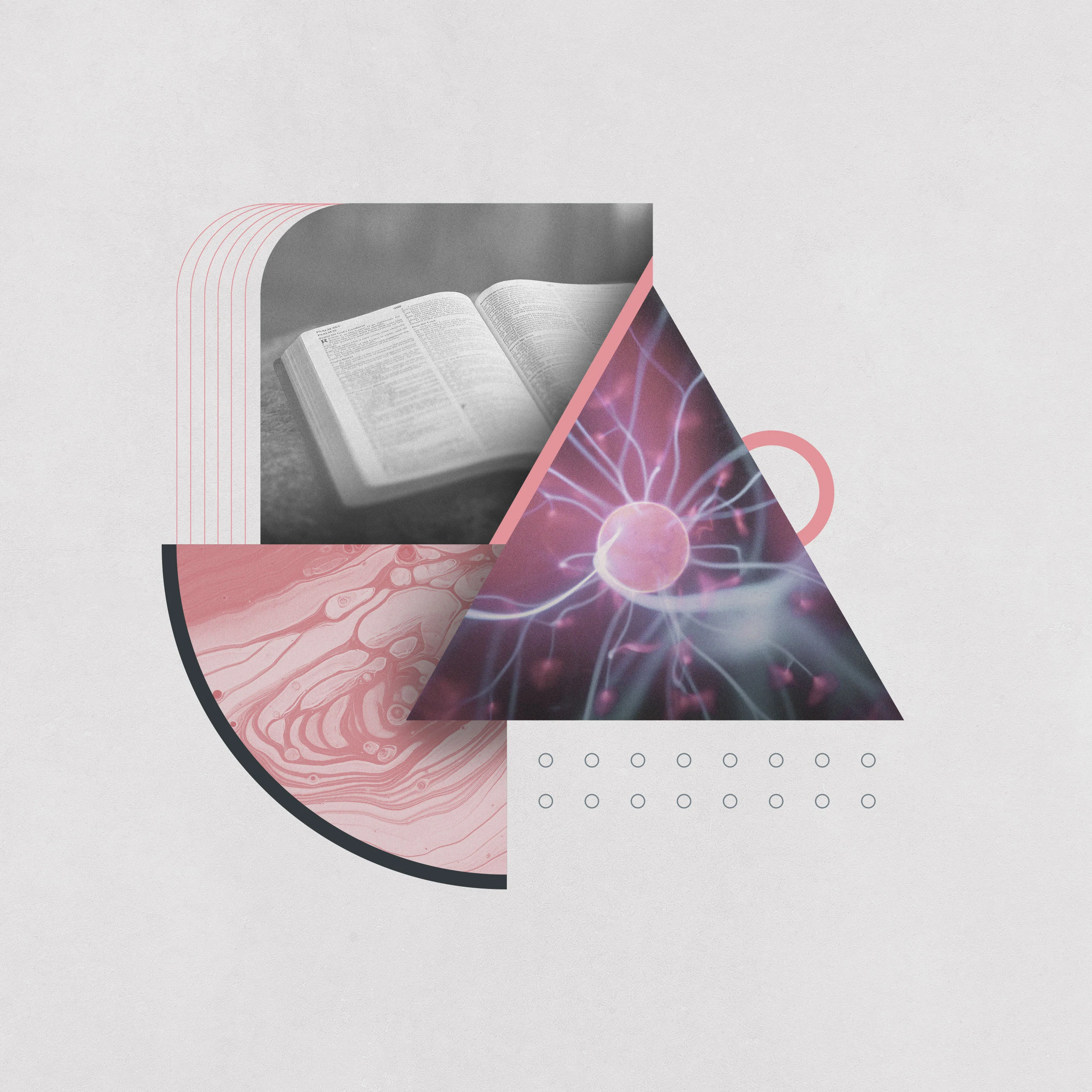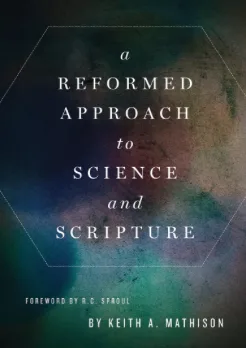When Science and Scripture Conflict

In his concluding remarks, Dr. Sproul made the following important statements:
However, if something can be shown to be definitively taught in the Bible without questioning, and somebody gives me a theory from natural revelation—that they think is based off of natural revelation—that contradicts the Word of God, I’m going to stand with the Word of God a hundred times out of a hundred. But again I have to repeat, I could have been a mistaken interpreter of the Word of God.
The Reformed doctrine of Scripture includes a belief in its inspiration, inerrancy, and absolute authority, and Dr. Sproul’s words here are a crucial reminder of these truths. If a scientific theory or hypothesis contradicts an actual teaching of Scripture, that scientific theory or hypothesis is necessarily wrong. Scripture teaches, for example, that God is the creator of heaven and earth and all that is within them. Any scientific theory that ascribes the existence of all things to purely materialistic forces is therefore wrong. The key issue, however, as Dr. Sproul reminds us here, is remembering the difference between the infallible Word of God and our fallible interpretations of that Word. Before we can determine whether or not a true contradiction exists between the Word of God and any scientific theory or hypothesis, we have to be sure that we have interpreted the Word of God correctly. Once we have established the actual teaching of Scripture, we have a certain touchstone.
Dr. Sproul continued:
But again, I don’t have to face that problem because I believe that both spheres are God’s spheres of revelation and that truth has to be compatible. So if they seem to be in conflict, and if they are in conflict, if a theory of science—natural science—is in conflict with a theological theory and contradicts it, here’s what I know for sure—somebody’s wrong.
In a previous post, we discussed Dr. Sproul’s assertion that all truth is God’s truth. One of the most important results of understanding this fact is the knowledge that ultimately there cannot be any real contradiction between what Scripture actually teaches and what is actually true about the way God created the universe and all that is in it. It is encouraging to know that when Scripture is properly interpreted and God’s creation is properly interpreted, there will be no contradiction. This means that Christians have absolutely nothing to fear ultimately from scientific research. If scientists discover something about God’s creation that is actually true, it will not and cannot ultimately contradict the Scriptures when they are properly interpreted. If there is a contradiction with properly interpreted Scripture, then we know that the “discovery” in question is a scientific misinterpretation of God’s creation.
In other words, if all truth has its source in God and if all truth is unified, then one thing we know to be a fact is that if there is a contradiction between an interpretation of Scripture and an interpretation of what God has created, then one or both of those interpretations is incorrect. They cannot both be correct. As Dr. Sproul said, “Somebody’s wrong.”
And I don’t leap to the conclusion that it has to be the scientist. It may be the theologian. But nor do I leap to the conclusion that it has to be the theologian. It could well be the scientist, because we’ve got fallible human beings interpreting infallible natural revelation, and fallible human beings interpreting infallible special revelation.
Dr. Sproul makes a very important point here because many people involved in discussions about Scripture and science hastily jump to one of two conclusions. Many scientists jump to the conclusion that if somebody is wrong, it has to be the student of God’s special revelation–the theologian or biblical scholar. This is unwarranted because, like all human beings, scientists are also fallible. History is replete with scientific theories and practices that have now been discarded (e.g. the aether, phlogiston, bodily humours). Nobody I know wishes, for example, to be treated by doctors holding to the “assured results’ of eighteenth-century medical science. Science is, by definition, a self-correcting enterprise, which means that science is, by definition, fallible. If it were not fallible, there would be no need for correction.
Many Christians, however, often jump to the opposite premature conclusion that if somebody is wrong, it has to be the student of God’s creation–the scientist. This is what happened with those who hastily dismissed the heliocentric view of the solar system because of the belief that it contradicted the Word of God. Jumping to the conclusion that if somebody is wrong, it has to be the scientist is unwarranted because neither synods, nor councils, nor theologians, nor internet bloggers are infallible interpreters of Scripture. Christians can make and have made mistakes in their interpretation of Scripture. As Dr. Sproul rightly noted, “we’ve got fallible human beings interpreting infallible natural revelation, and fallible human beings interpreting infallible special revelation.” So as Dr. Sproul reminds us, we don’t automatically jump to one conclusion or the other. Both scientists and theologians are fallible.
Dr. Sproul’s response is important because a consistent and continuing failure to keep all of these things in mind has led to one problem after another in the church. On the one hand, we find numerous Christians making premature concessions to scientific speculations that are in their infancy and which may be rejected in the light of more research. There are Christian physicists, for example, who are already asserting that we must accept the concept of a multiverse. To the best of my knowledge, however, the multiverse concept remains a hypothesis. In fact, there appear to be numerous multiverse hypotheses debated at this time among those who accept the general idea. There is also debate over whether such hypotheses are even testable. So why should Christians accept this concept as if it were an established fact? A cursory survey of eighteenth and nineteenth century Christian journals and apologetics textbooks should make any Christian a bit wary of making premature concessions to scientific theories and hypotheses. These works are full of references made by Christian ministers and theologians to “facts” of eighteenth and nineteenth century science–“facts” that have since been rejected. We need to learn from their mistakes.
On the other hand, we find some Christians rejecting conclusions drawn from observations of God’s creation that have been repeatedly tested and confirmed in every way imaginable for centuries. This rejection happens, as we have noted, because of a perceived contradiction between the scientific concept in question and the Word of God. All true Christians rightly uphold the absolute authority of God’s Word. However, if there is a failure to consider the possibility mentioned by Dr. Sproul above (the possibility that the contradiction may be due to our misinterpretation of God’s Word rather than to a misinterpretation of God’s creation), then Christians can end up placing their own word in the place of God’s Word and rejecting something that is actually true about God’s creation. We have to remember that not only synods and councils, but theologians and we ourselves can and have erred. We are not infallible in our interpretation of Scripture.
What then should Christians do when they encounter a scientific theory that appears to conflict with Scripture? From Dr. Sproul’s response, we can glean several points. First, we can relax and not be afraid that the scientific theory in question is going to disprove Christianity. God is the source of all truth, and ultimately there will be no real conflict between what God reveals in Scripture and what is true about His created works. Second, we remember that God is the ultimate authority and that if there turns out to be a real conflict between the scientific theory in question and the actual teaching of Scripture, the scientific theory is wrong. Third, we recognize that our goal is to discover the truth in order that we might not bear false testimony regarding God or His created works. In order to do so, we must recognize that the conflict may be due to a misinterpretation of creation or to a misinterpretation of Scripture, or to a misinterpretation of both. This means we need to do a thorough and careful examination of both the scientific theory and the biblical exegesis to discover the source of the conflict. We must make sure we are dealing with the actual teaching of Scripture as opposed to a mistaken interpretation of Scripture. And we must examine the evidence for the scientific theory in question to discover whether we are dealing with something that is true about God’s creation or something that is merely speculation. All of this hard work takes time, and it means that we do not jump to hasty conclusions.
These concepts are not as controversial when we are referring to issues such as geocentrism. They become much more difficult when we attempt to apply them to scientific issues of our own day. In our final post, we will look more closely at Dr. Sproul’s answer to the controversial question about the age of the universe.
This article is part of the Reformed Approach to Science and Scripture collection.



